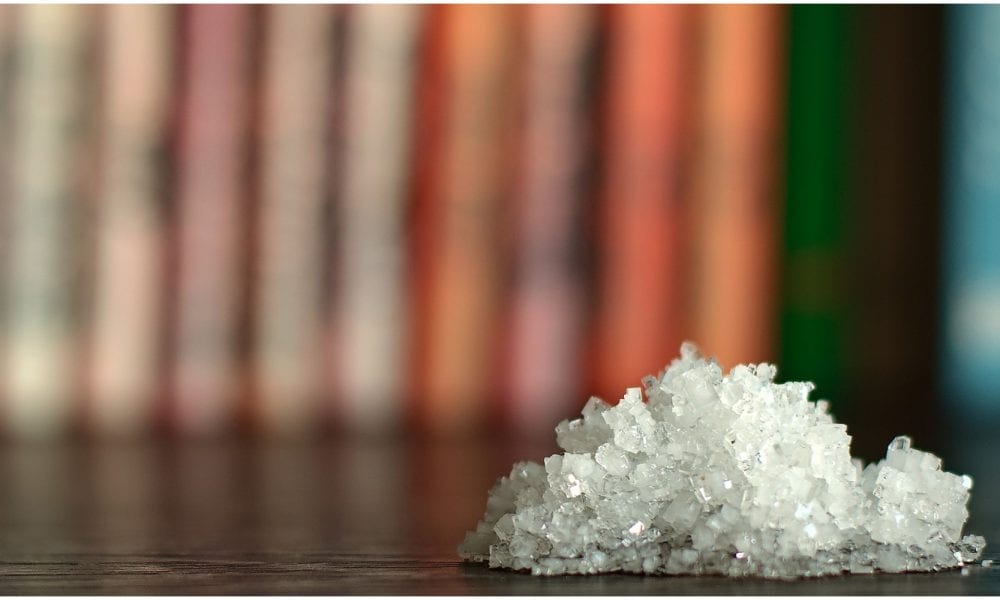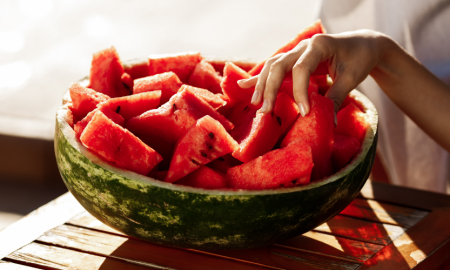
Is A Low-Sodium Diet Actually Good For You?

 What is a low sodium diet? It’s a meal plan that advises you on cutting down the quantity of sodium in your diet. A diet with low sodium content is ideal for helping you fight against medical conditions like kidney diseases, liver diseases, high blood pressure, etc. Your body does require a certain amount of sodium in a day.
What is a low sodium diet? It’s a meal plan that advises you on cutting down the quantity of sodium in your diet. A diet with low sodium content is ideal for helping you fight against medical conditions like kidney diseases, liver diseases, high blood pressure, etc. Your body does require a certain amount of sodium in a day.
But for most people, the required amount of sodium should be low to stay healthy. A few dietary guidelines advise you on your sodium consumption in a day and give you a proper outline of the benefits that low sodium intake brings to your body. Scroll down to know everything you need to know about a low sodium diet.
Dietary Guidelines
For proper functioning, your body requires a particular amount of sodium. Sodium aids in the maintenance of fluid balance in your body and also boosts nerve and muscle function. Too much sodium might prove to be detrimental to your body’s overall health. Several complications might occur. If you have high blood pressure, the condition might worsen over a due course of time. Experts advise that sodium consumption in a day must be less than 2300 mg for people who are 14 and above. 2300 mg is equivalent to a teaspoon of salt.
The AHA or the American Heart Association seconds this. But, it suggests that the perfect quantity of sodium intake per day is 1500 mg. According to a report by the AHA, an average American consumes 3400 mg of sodium through their daily diet. This amount is way higher than the level that the experts have recommended.
Benefits Of A Low Sodium Diet
 If you consume excess sodium, your blood will contain more sodium than the advised level. Sodium adds water to the bloodstream, leading to the expansion of blood to a higher volume. The higher the blood volume, the higher is the blood pressure. This condition, the doctors say, is hypertension. The Food and Drug Administration or the FDA says that uncontrolled hypertension might accentuate health complications in an individual.
If you consume excess sodium, your blood will contain more sodium than the advised level. Sodium adds water to the bloodstream, leading to the expansion of blood to a higher volume. The higher the blood volume, the higher is the blood pressure. This condition, the doctors say, is hypertension. The Food and Drug Administration or the FDA says that uncontrolled hypertension might accentuate health complications in an individual.
This includes health risks such as heart attack, heart failure, stroke, kidney failure, and blindness. Once you reduce the sodium intake in your diet, the blood pressure comes back to normal. Proper sodium content in your food prevents your blood pressure from rising in the later stages.
Which Conditions A Low Sodium Diet Benefits?
Sodium introduces more water to the bloodstream, taking the blood volume to a higher level. This rise in blood volume has a detrimental impact as it applies more pressure on your body’s circulatory system. A reduced sodium intake will bring back the blood pressure to normal.
The kidneys have a crucial role to play in controlling the levels of sodium in your body. If the kidneys can’t function properly, excess sodium and excess fluid will accumulate, resulting in high blood pressure. Aside from that, you will notice swelling in the area under your eyes.
Your ankles, too, will swell and lead to a painful situation. There is advice from the NKF or the National Kidney Foundation that people suffering from kidney disease should immediately diminish their sodium consumption if they want to prevent future health complications. People who suffer from liver diseases might experience hypertension. The condition of a fluid buildup in the abdomen is known as ascites. According to healthcare professionals, people with conditions such as liver cirrhosis and ascites must refrain from consuming high quantities of sodium to stay healthy.
Foods You Should Consume
 According to the Office of Disease Preventing and Health Promotion, people can control their sodium intake. And they can do this by adding fresh fruits and veggies, frozen vegetables that don’t contain sauce, bread, grains, salad dressings, and condiments.
According to the Office of Disease Preventing and Health Promotion, people can control their sodium intake. And they can do this by adding fresh fruits and veggies, frozen vegetables that don’t contain sauce, bread, grains, salad dressings, and condiments.
All these foods do not contain a lot of sodium. You can also pick a few canned veggies or beans that have something like ‘no added salt’ or low in sodium’ kind of a tag on the label, low fat or fat-free dairy products, etc., to their daily diet.
Sodium plays a significant role in maintaining the fluid balance in your body. But, make it a point that you don’t overdo your daily sodium intake to stay in the pink of health. And before you switch your diet, make sure you run it by your dietician to get a personalized diet routine! We say so because no salt could do as much harm to your body as too much salt. So, stay healthy and stay safe!
More in Diet
-
`
Are Mono Diets Worth It – or Just a Dangerous Trend?
As summer brings on the pressure to slim down fast, the internet lights up with diet trends promising instant results. One...
August 3, 2025 -
`
Why Motivation Is Essential for Sustainable Fitness Success
Motivation isn’t something that shows up when it’s convenient—it’s something that needs to be built, shaped, and sustained. Many people struggling...
July 27, 2025 -
`
The Mystery of Human Body Parts That Science Still Can’t Solve
The human body is a patchwork of evolutionary choices, quirks, and mysteries. From skeletal structure to the tiniest gland, everything tells...
July 18, 2025 -
`
Why a Mediterranean Diet and Exercise Slow Bone Loss in Seniors
Bone health isn’t just a concern for the elderly—it’s something that starts to matter the moment the body begins to lose...
July 12, 2025 -
`
Want Better Memory? This Diet Could Help Keep Your Brain Sharp
Losing focus, memory lapses, or slower thinking—these aren’t just normal parts of aging. While cognitive changes do happen over time, lifestyle...
July 5, 2025 -
`
The Truth About Health Tracking Apps and Their Impact on Wellness
Scroll through social media or browse the App Store, and you’ll likely spot dozens of health tracking apps. They promise everything—from...
June 29, 2025 -
`
New Study Reveals Alzheimer’s Affects the Entire Body
Most people associate Alzheimer’s with memory loss and cognitive decline, assuming its impact stays confined to the brain. But new findings...
June 21, 2025 -
`
The One Simple Habit Mark Cuban Credits for His Success
Success doesn’t come from shortcuts or luck—it’s built on habits that stand the test of time. Mark Cuban, the outspoken billionaire,...
June 14, 2025 -
`
Thinking of a Detox Diet? Read This Before You Start
Detox diets continue to be one of the most talked-about trends in the wellness space. Whether it’s juice cleanses, tea plans,...
June 8, 2025









You must be logged in to post a comment Login